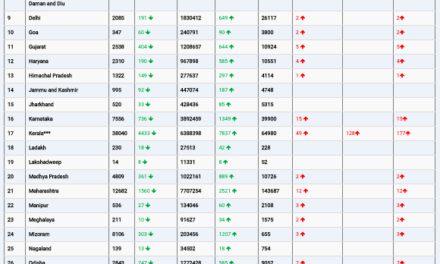Recent research presented at the European Congress on Obesity suggests that the ideal body mass index (BMI) to reduce the risk of death from cardiovascular disease (CVD) among individuals with type 2 diabetes varies with age. This study challenges the notion of a universal BMI range for optimal health outcomes and emphasizes the importance of individualized care.
The study, which is yet to be published, investigated the relationship between BMI and cardiovascular mortality risk among people with type 2 diabetes. Researchers found that the optimal BMI range differed significantly based on age, with individuals over 65 years old exhibiting better health outcomes when their BMI fell within the “overweight” range compared to those in the “normal” range.
Lead author Shaoyong Xu, MD, emphasized the importance of this age-dependent approach, stating that “there exists a disparity in the optimal cut-off point for BMI and risk of cardiovascular mortality between elderly and non-elderly individuals with diabetes.” The study suggests that personalized risk assessment is essential for effectively managing cardiovascular health in patients with type 2 diabetes.
The findings are based on an analysis of data from the UK Biobank, which included nearly 23,000 individuals with type 2 diabetes. Participants were divided into two age groups: those aged 65 and under (middle-aged adults) and those over 65 (elderly adults). The study spanned from 2006 to 2010, with an average follow-up period of 12.5 years.
Results showed that middle-aged adults with a BMI in the “normal” range (BMI < 25) had the lowest risk of CVD mortality, while elderly adults exhibited better outcomes with a BMI in the “overweight” range (BMI 26-28). This age-dependent pattern underscores the need for tailored interventions to address cardiovascular risk factors in patients with type 2 diabetes.
Commenting on the study’s implications, Ivania Rizo, MD, stressed the importance of individualized care and cautioned against adopting a “one-size-fits-all” approach to weight management in diabetes. She emphasized the need for comprehensive risk assessment, taking into account factors beyond BMI, such as waist circumference and waist-to-height ratio.
However, some experts remain cautious about the findings, citing the complexities surrounding BMI, obesity, and health outcomes. Sun Kim, MD, MS, highlighted the need for further research to better understand the relationship between BMI, age, and cardiovascular risk in diabetes.
The study adds to the ongoing debate surrounding BMI and its role in predicting health outcomes. While BMI remains a widely used measure of body weight, its limitations underscore the importance of exploring alternative markers of adiposity and cardiovascular risk.
As research continues to unravel the complexities of obesity and chronic disease, the need for personalized, evidence-based interventions becomes increasingly apparent. The study’s findings underscore the importance of individualized care in managing cardiovascular risk factors among individuals with type 2 diabetes.
In conclusion, the study highlights the age-dependent nature of BMI and its implications for cardiovascular health in type 2 diabetes patients. As the science evolves, a holistic approach to risk assessment is essential for guiding effective interventions and improving patient outcomes.












